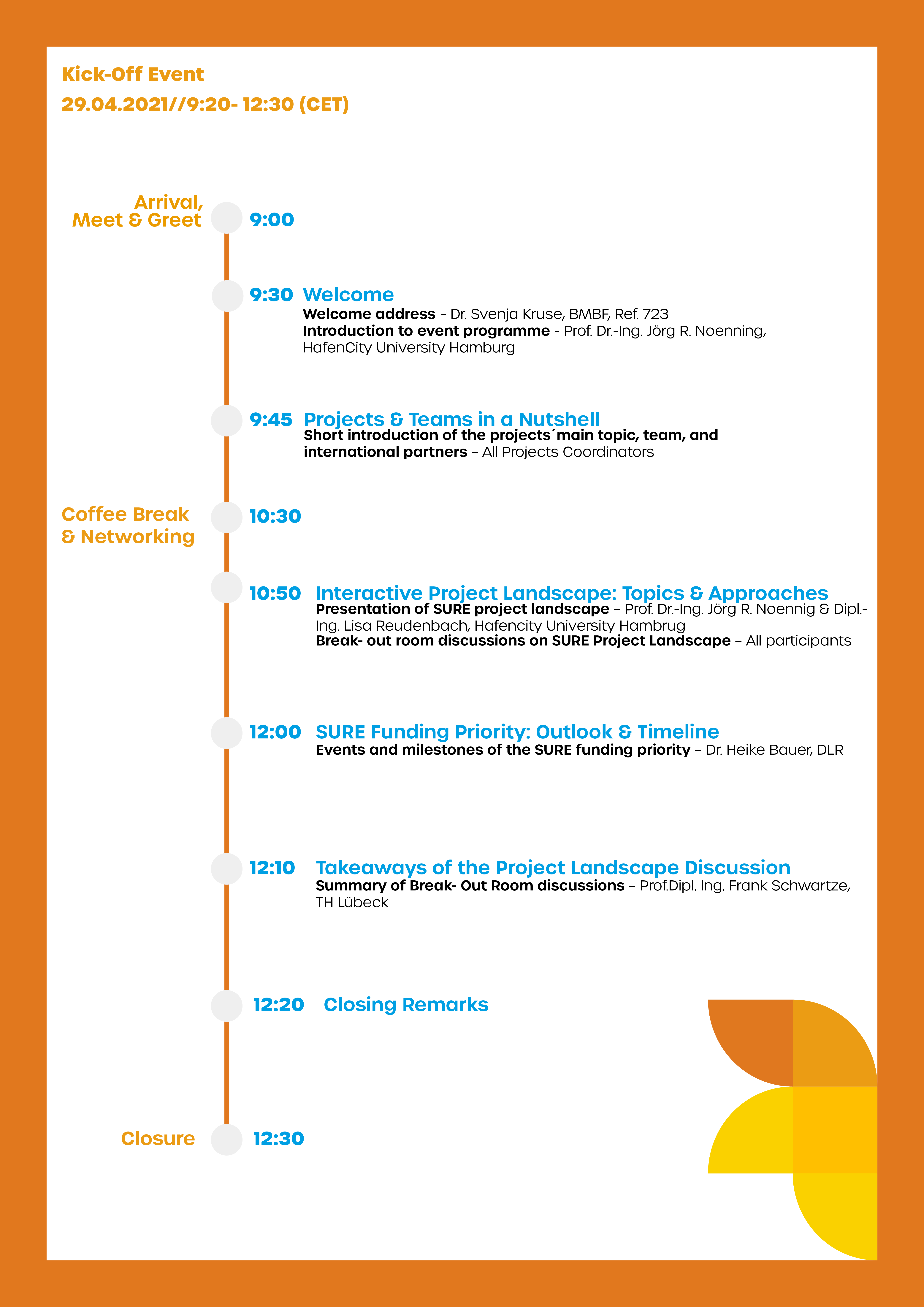BMBF Funding Priority on Sustainable Urban Regions in Southeast Asia and China launched
On 29th April 2021, the kick-off event of the funding priority SURE – Sustainable Development of Urban Regions – took place. The funding priority focuses on sustainable urban development and resilient infrastructure building in Southeast Asia and China. The funding priority was initiated by the Federal Ministry of Education and Research as part of the Research for Sustainability Strategy (FONA Strategy). Around 100 funding priority participants from Germany and partner countries such as China, Laos and Cambodia took part in the online event.
The participants intensively discussed the role of cities as drivers of climate change. However, the vulnerability of urban regions to rising temperatures or increasing extreme weather events was equally focused. Cities are hubs for effective solution strategies which aim to combat climate change and make urban regions more resilient to the impacts of change.
The lively exchange is the kick-off and basis for cross-project cooperation during the research and development phase over the next four years. The funding priority participants are supported by a networking, transfer and synthesis project, jointly carried out by HafenCity University Hamburg, TH Lübeck, University of Applied Sciences, and TÜV Rheinland Consulting GmbH. The facilitation team provides scientific support, encourages international transfer and promotes scientific communication between different stakeholders. The participants look forward to good conditions for synergies and learning effects in order to jointly reduce urban emissions, shape meaningful recycling of materials and promote green growth. In the future, the SURE funding priority will produce action-oriented knowledge for the practical management of energy and resource problems, as well as support the necessary cooperation between politics, business and society.

Key Topics
- ensure co-design, collaboration & multi-stakeholder decision-making
- conceptualise the urban-regional nexus
- make sustainability measures economically viable
- use & develop appropriate technology
- integrate cultural values & local knowledge
- deal with uncertainties
- enact behavior change
- deal with misfitting legal frameworks
- integrate and connect complex data
- create actionable knowledge & make implementation work